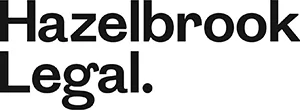In its latest attempt to combat phoenix activity, the Australian Government has introduced a regime requiring directors of Australian companies to hold a unique Director Identification Number (DIN). The purpose of the regime is to reduce fraud and 'phoenixing' and facilitate better accountability for directors.
This article explores who will need a DIN, how to get one, what steps should be taken in preparation for the obligations, and details about how the regime will be implemented. Finally, we touch on the purpose and intentions behind the changes, and how they might benefit businesses going forward. The commencement date has not yet been finalised, but we can expect the regime to kick off sometime in early 2021.1
WHO NEEDS A DIN?
All 'eligible officers' must register for, and permanently hold, a DIN once the regime is underway.
According to the legislation, "An 'eligible officer' is:
- A director of a company, or of a body corporate that is a registered Australian body or registered foreign company, who:
-
- is appointed to the position of a director; or
- is appointed to the position of an alternate director and
is acting in
that capacity; regardless of the name that is given to that position; or
- Any other officer of a company, or of a body corporate that is a registered Australian body or registered foreign company, who is an officer of a kind prescribed by the regulations."2
Given that each DIN is unique and permanent, an eligible officer may apply for a DIN only if they do not already hold one. Of course, as this is a new initiative, every person currently holding the position of director (or alternate director) for a registered Australian body or foreign company must apply for a DIN once the Registrar is appointed and applications open. As discussed further below, the Registrar is the entity responsible for implementing and monitoring the DIN system. If a person is not currently an eligible officer, they may only apply if they will become an eligible officer within 12 months of the application.
Each director will be required to confirm their identity when applying for a DIN.
WHAT STEPS SHOULD I TAKE?
During the first 12 months from the appointment of the Registrar (updates to come once the Registrar is appointed), an individual appointed as a director must apply for a DIN within 28 days of their appointment.
After that initial 12-month period, individuals will need to hold a DIN prior to any board appointments.
Therefore, to ensure compliance with the incoming regime, companies should confirm the identity of its directors and request that directors gather documents required for proof of identity (including birth certificates, passports, or similar). Once the regime is in full force these obligations extend to ensuring prospective directors have a DIN to avoid delay with board appointments.
It is important to remember that failure to comply with the obligations can result in criminal and/or civil penalties. Notably, there is an express prohibition on directors attempting to create multiple DINs, misrepresenting their identity to the Registrar, or acting as director without a DIN. Criminal liability can accrue where a person provides false information concerning their identity.
We will continue to provide updates on the timeframe provided to apply for a DIN, and details about how to apply once the commencement date for the regime is confirmed.
WILL THE REGIME HELP ME?
The new regime is also a positive opportunity for companies, who can use the DIN to gain insight into the history of a potential director.
Because the DIN attaches to a director permanently, businesses will be able to search potential directors on the registry and view their history as directors. For example, that search would reveal any past involvement with insolvent or failed companies. The centralised data held as a product of the DIN regime will therefore make such record checking fast, easy, and accessible, which is particularly advantageous for small businesses with limited resources. Companies will also easily be able to check for potential conflicts of interest through the DIN, which is particularly important for non-executive directors that may hold the position of director with multiple entities at any given time. Thus, the DIN regime will make traceability easier not only for ASIC as a regulator, but also for companies in their capacity as employers.
HOW WILL THE DIN REGIME BE IMPLEMENTED?
At this stage, the timeline for implementation of the obligations has not been confirmed. What we do know is that the changes will apply no later than 22 June 2022. For existing directors, a 'transition period' will be provided for the application for DINs once the regime commences. Failure to apply by the end of that transitional period will amount to a breach.
The regime will be administered by a Registrar with the power to issue, cancel, and reissue DINs, maintain relevant records, determine the numbering system, and regulate the means of verifying applicant identity. Currently, the need for a Registrar is the key cause of the uncertainty surrounding when the DIN scheme will commence. Therefore, further updates will be available once the Registrar is appointed and a regulating body has been established.
Only the Registrar has the power to amend or revoke a DIN once issued, and DINs will not be repeated. This means that, like the current regime for drivers' licenses, even once a person ceases to be a director their DIN will remain attached to them.
No other individual will be issued the same number.
WHY DO WE NEED DINS?
The amendments seek to reduce 'phoenixing' and identity fraud. Phoenixing is the practice of winding up a company whilst transferring any remaining valuable assets to a new company for the purposes of evading debt and other liabilities. The result is to "resurrect" the company under a separate legal entity that is not bound by the liabilities of the previous company. The introduction of DINs is one of many regulatory changes that seek to minimise that economic burden by making 'phoenixing' more difficult.
By requiring proof of identity for all company directors and issuing a DIN, the changes will improve traceability and prevent the existence of fictitious directors (because of the required identification check). The increased traceability combined with the inability to install 'dummy directors', who are unaware of their position as director and used to 'take the fall', allows ASIC and its appointed Registrar to monitor directors and hold them to account when necessary. Traceability under the DIN will also benefit companies by giving them greater insight into the track record of potential hires.
Footnotes
1Directors to get ID number 'for life'
to thwart phoenixing
2Corporations Act 2001 No. 50, 2001 - SECT
1272
The content of this article is intended to provide a general guide to the subject matter. Specialist advice should be sought about your specific circumstances.


